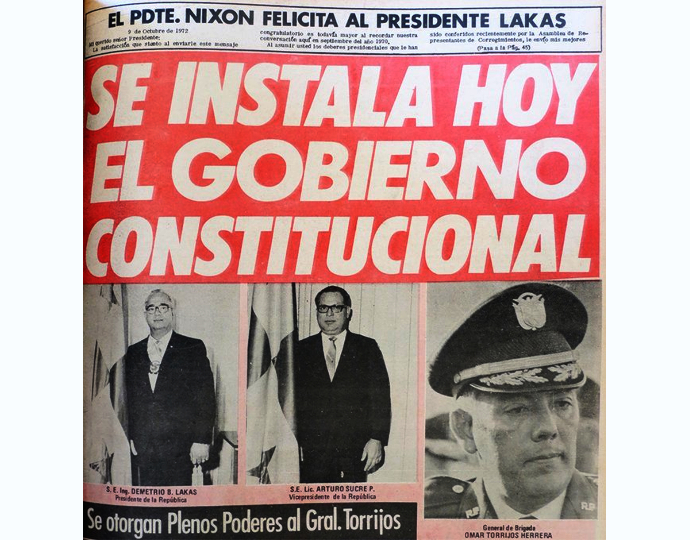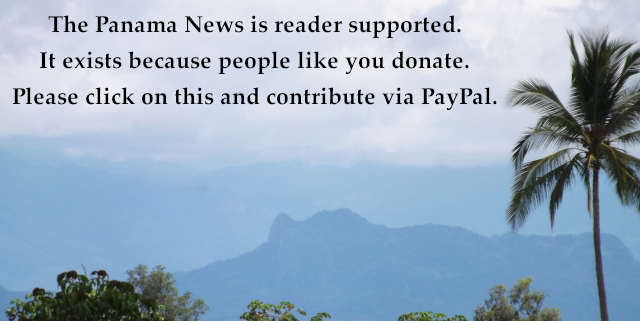Richard Nixon was no friend of Latin American democracy, but to get a treaty ratified by the United States two-thirds of the Senate must approve. Negotiations to get a new canal treaty started with President Eisenhower and continued under the Kennedy, Johnson, Nixon, Ford and Carter administrations. At the highest levels there was a consensus that the Canal Zone scheme had to go, but to convince Congress an appearance of democracy had to be created. Thus a 1972 convention of representantes elected in 1968, even though the president elected that year had been overthrown. The unrepresentative body made dictatorship “constitutional.” We still have that constitution. An old newspaper headline from the Panama Vieja Escuela Twitter feed.
Corregimientos versus municipalities (II)
by Miguel Antonio Bernal V.
I finished my previous article by highlighting that:
The abolition of the 1946 Constitution due to the 1968 military coup d’état opened the way for the imposition of the townships as a territorial and political base, which would serve since then as a support for the authoritarian political regime established by the dictatorship and that still predominates today.
The imposition of the corregimientos as the political base of the state, instead of the municipality, has meant a distortion and deformation of the republican matrix of government and, in the electoral political plane, the absence of a directly proportional relationship between the number of votes cast by the electors and the distribution of elective offices or seats.
This means that proportional representation is opposed to majority electoral systems that give all the seats to the winners, deny access to minorities and, therefore, can appear disproportionate and unfair.
By dividing the territory, originally into 505 such districts, and by imposing the election of one representante per corregimiento, a uninominal majority pattern was established. That is, each one of the representantes is elected on the basis of the electoral circumscription called corregimiento, but without taking into account the number of voting citizens that inhabit the corregimiento. This brings as a result that more than 50% of the representantes are elected by less than 10% of the population.
Thus, the will of the citizens is violated. The situation worsens when the number of districts reaches 700, creating a destructive atomization of citizenship — citizenship, in the modern sense, is national by definition — and of social solidarity, of integration and national identity, to favor the interests of the minorities that control political power and enrich themselves without limits.
In a society like ours, where the divorce between the social and the political is increasing by leaps and bounds, keeping the municipality as a territorial political base banished from our institutions is an irreparable mistake.
Effective participation in society means becoming citizens, that is, full members of a political community. That happens through a remunicipalization of the Panamanian state.
Contact us by email at fund4thepanamanews@gmail.com
To fend off hackers, organized trolls and other online vandalism, our website comments feature is switched off. Instead, come to our Facebook page to join in the discussion.
These links are interactive — click on the boxes












